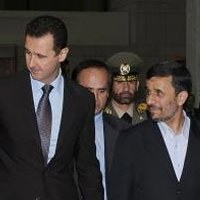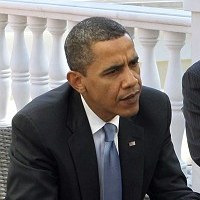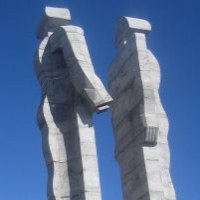![]()
Thu, June 09, 2011 | Cagaptay.com | by Soner Cagaptay
Turkey’s June 12 Elections
This article was first published in the PolicyWatch #1812, a publication of The Washington Institute for Near East Policy.
This Sunday, Turks go to the polls for parliamentary elections that will determine their next government. The ruling Justice and Development Party (AKP) is predicted to win for the third consecutive time since 2002, extending its mandate into 2016 and making it the longest-ruling faction in Turkey’s seven-decade history as a multiparty democracy. Since 2002, the AKP has dramatically transformed Turkey’s foreign policy, creating an environment in which cooperation with the United States has been periodically interrupted by sharp differences, particularly on issues such as Iran’s nuclearization and the Arab-Israeli conflict. The party has also built a conservative power base within the country’s bureaucracy, media, and business community, challenging their traditional pro-Western nature. Another AKP victory could well accelerate these trends, particularly if the party gains sole control over amending Turkey’s constitution.
The AKP after a Decade
The early years of the AKP’s rule (2002-2005) were marked by the liberalizing reforms the party legislated in order to qualify Turkey for European Union membership. Yet after Ankara began accession talks with Brussels in 2005, the AKP’s appetite for Europe and its liberal ethos gradually waned, particularly once the challenge of actually implementing the EU’s tough economic and social reforms became clear. In the end, the party’s strategic commitment to a second election victory to consolidate its power trumped its commitment to the EU process.
As many analysts have argued, the AKP further shifted away from its pro-liberal stance following the 2007 national elections, in which it won 47 percent of the vote. Following that victory, the party abandoned its policy of consensual politics and began to interpret democracy in a manner that disregarded checks and balances (such as an independent media) and protection of political minorities. For example, Turkey has been shaken by government-led efforts to intimidate the media that have included politically motivated tax audits, fines against independent outlets, and arrests of journalists. In fact, the country now has the highest number of imprisoned journalists (fifty-seven) in the entire world, according to a recent report by the Organization for Security and Co-operation in Europe.
Growing popular support has led the AKP to not only jettison consensual politics, but also reconsider its past foreign policy alignment with Washington. Although it maintained cooperation with the United States in Iraq and Afghanistan, the party eventually began to act counter to U.S. interests on other key issues. For example, in June 2010 Ankara voted against UN Security Council sanctions on Iran and more recently resisted a NATO-led mission over Libya.
Given the correlation between the AKP’s increased popular support and its post-2007 political choices, the scale of a victory on Sunday will likely determine which direction the party takes: a strong showing that exceeds its 2007 tally might be interpreted by AKP leaders as vindication of their policies and a green light to continue them. Since the polls currently show support for the AKP hovering around 45-50 percent, the party may well receive the justification it seeks. In contrast, a lackluster win might precipitate a return to pre-2007 pro-liberal policies.
An AKP Constitution?
The first question many will ask in the wake of another AKP victory is whether the party intends to singlehandedly draft and adopt Turkey’s next constitution. Most Turks agree that the country needs to update the constitution first drafted by the military in 1982. Passing a new charter would require support from a parliamentary supermajority (i.e., two-thirds of the legislature, or 367 of 550 seats). But even if the measure reached only the 330-seat threshold, the document could still pass if approved through a public referendum.
The AKP’s ability to win the requisite 330 seats depends on both the party’s performance this weekend and Turkey’s uniquely high ten-percent electoral threshold. The latter requirement forces minority parties to win at least 10 percent of the popular vote in order to gain even a single seat in the legislature — a threshold that has prevented smaller parties from joining parliament despite collectively receiving millions of votes in past elections. In 2002, for instance, the AKP gained 66 percent of the seats in parliament by winning only 34 percent of the vote, meaning that it could once again secure a legislative majority on Sunday even if it receives less than half of the votes.
The threshold might empower the ruling party in other ways as well. The AKP’s main opposition, the social-democrat Republican People’s Party (CHP), is projected to increase its support dramatically, from 22 percent in 2007 to as high as 30 percent this weekend. Yet the Kurdish nationalist Peace and Democracy Party (BDP) is running independent candidates to avoid the threshold (independents need only gain enough support in their respective provinces to enter parliament, so this tactic will likely gain the faction about two dozen seats). Moreover, some polls indicate that the conservative Nationalist Action Party (MHP) might fail to reach the threshold, and no other party appears even close — a situation that could significantly boost the AKP’s dominance.
The MHP leadership has recently been rocked by sex-tape scandals, hurting the party’s standing among its electorate in the conservative Central Anatolian heartland. Interestingly, though, because the government has failed to thoroughly investigate these illegally obtained videotapes, the MHP has been cast sympathetically as a victim of political mudslinging. This development could bring the party some votes — the Turkish electorate has a tendency to vote for the underdog, such as its turn toward the AKP in 2002 after founder Recep Tayyip Erdogan was jailed in the late 1990s.
If the MHP fails to reach the threshold, however, the AKP could obtain supermajority with as little as 49 percent of the vote, assuming the CHP falls under 28 percent. Such an outcome — or even a less outright victory, depending on the final tallies — would pave the way for a constitutional process driven by the AKP alone. This would likely embolden the party’s authoritarian instincts and potentially result in a new charter that reflects those instincts.
Alternatively, if the MHP and CHP both perform according to their midrange poll expectations — currently 23-27 percent and 10-15 percent, respectively — then the AKP may not even reach a 330-seat majority. This would open the path for a consensus-driven constitutional process, diminishing Turkey’s polarization between Islamist and secularist camps while sparking both internal and public debate regarding the AKP’s authoritarianism.
Implications for Washington
As in the domestic arena, AKP leaders would also interpret an electoral victory as vindication of their foreign policy, which has often been at odds with U.S. policy in the Middle East. At the same time, the party would likely still work with the United States if it received adequate attention from Washington. Hence, a dominant AKP presence in the legislature would produce a U.S.-Turkish relationship that, while crisis driven, would remain intact in the long run.
Even so, Washington and Ankara will likely fail to see eye to eye on two issues: Turkey’s EU accession and ties with Israel. Given the AKP’s increasingly anti-EU tone and deepening tension with Israel, it is difficult to imagine the party retracing its steps on either issue if it once again gains legislative dominance. Yet a weak showing on Sunday — such as a failure to surpass 48 percent of the vote or otherwise obtain a strong legislative majority — could lead Turks to question the party’s foreign policy, and neither EU accession nor ties with Israel would be spared from such a debate.
About the author,
Soner Cagaptay is director of The Washington Institute’s Turkish Research Program.



 RSS
RSS












Turkey’s June 12 Elections | #Turkey #AKP #Erdogan #Islamism #EU #tcot http://j.mp/ijZ1ic
Turkey’s June 12 Elections | #Turkey #AKP #Erdogan #Islamism #EU #tcot http://j.mp/ijZ1ic